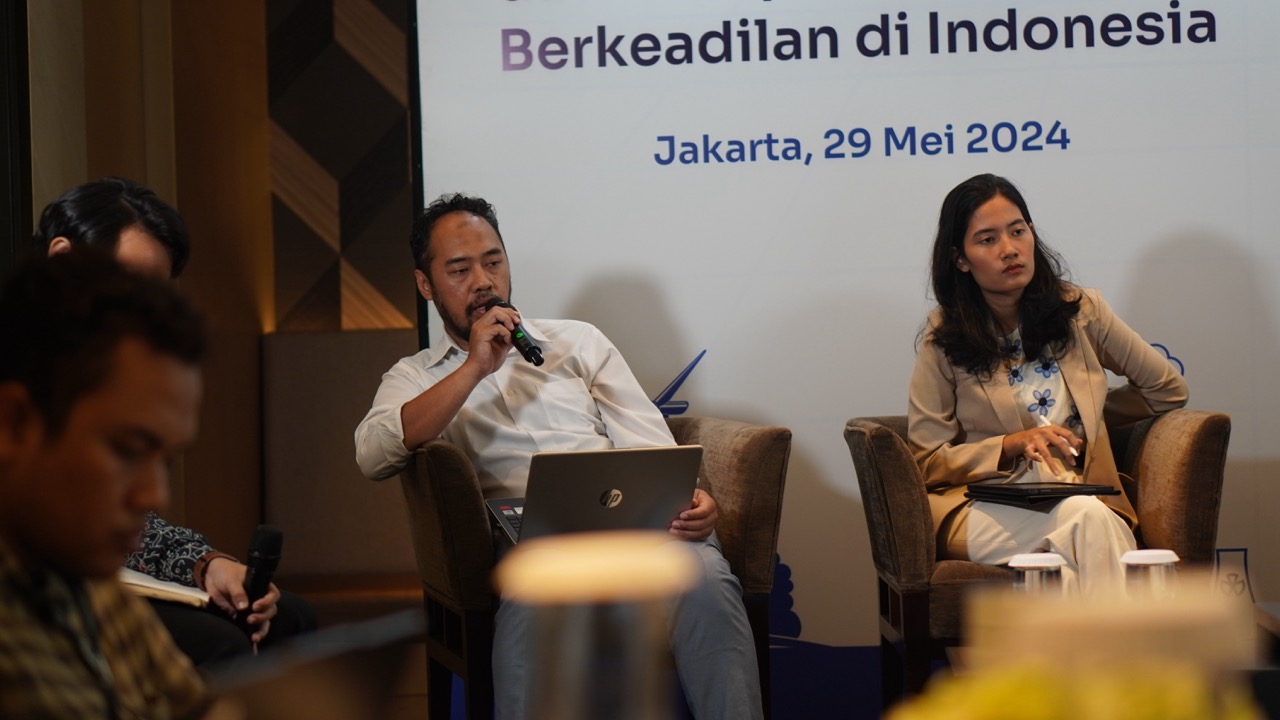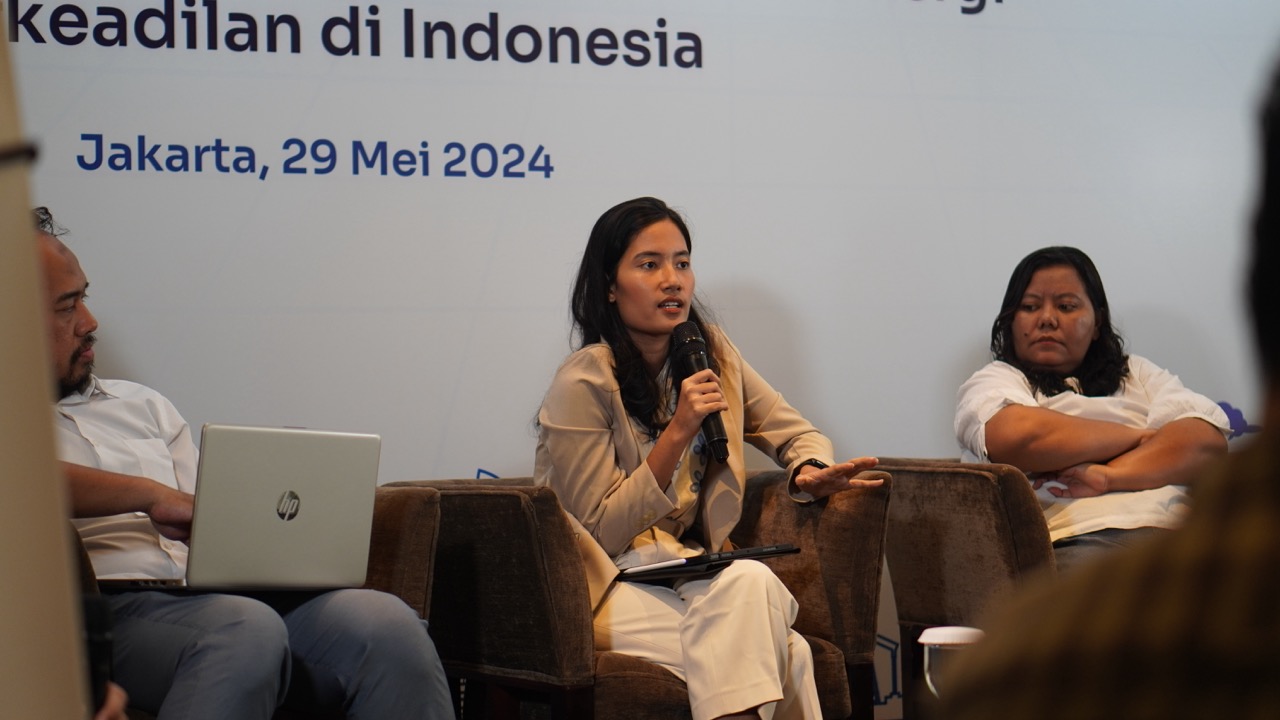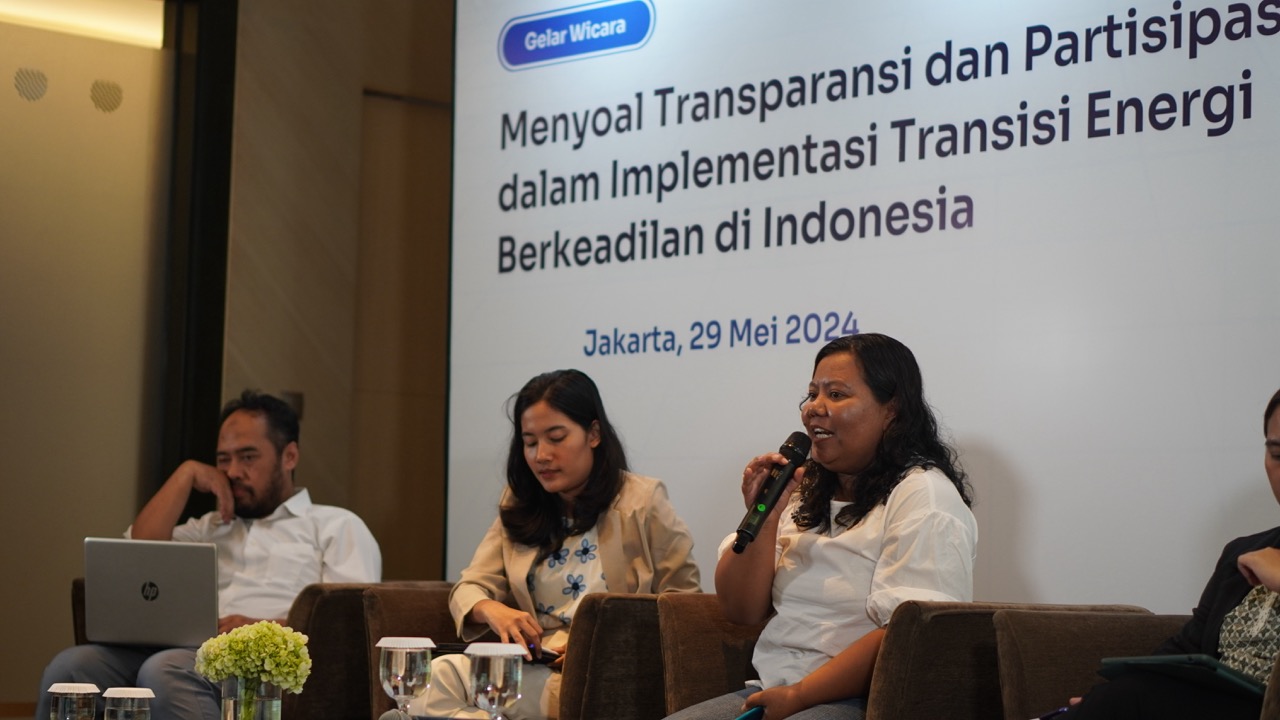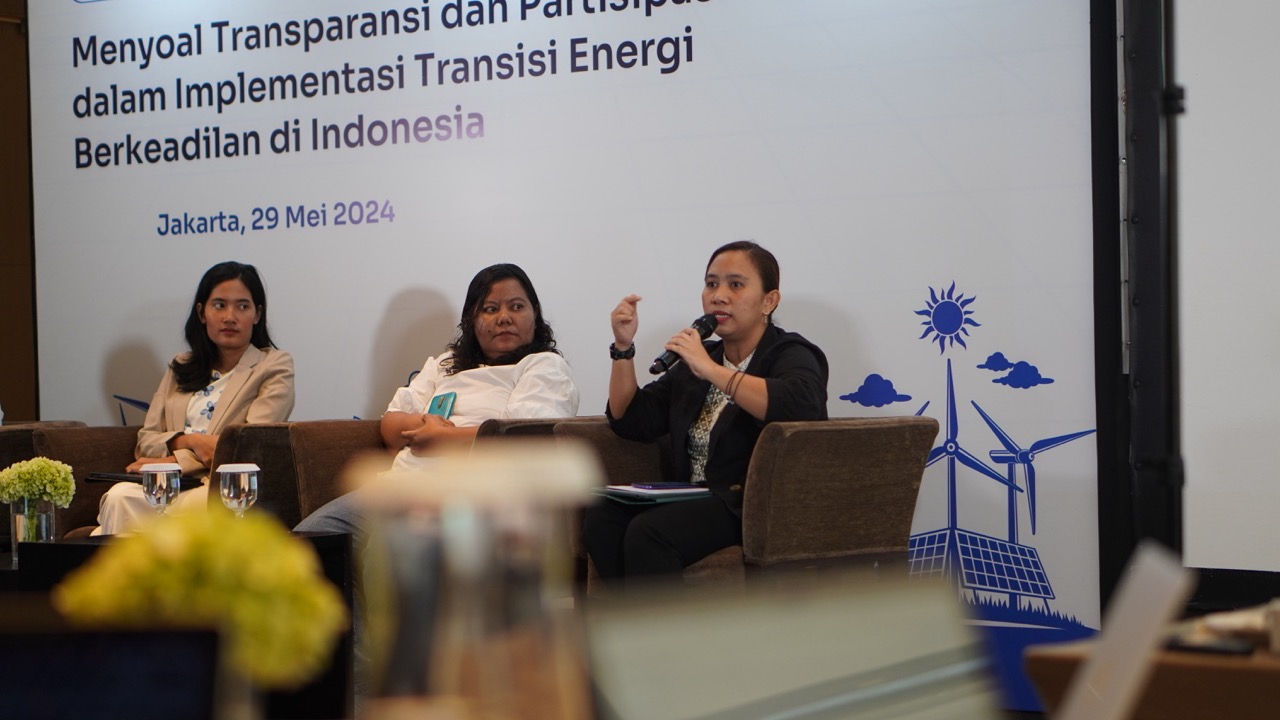Released for May 29, 2024 and afterward
Jakarta – To increase national and global commitment in the openness of government through the implementation of the Open Government Partnership (OGP) 1, Publish What You Pay (PWYP) Indonesia in collaboration with the Indonesian Center for Environmental Law (ICEL) and the Secretariat of Open Government Indonesia (OGI) held a talk show as well as participating in Open Government Week 20242 The topic related “Problems of Transparency and Public Participation in the Implementation of a Just Energy Transition in Indonesia.” The event took place in Central Jakarta on May 29, 2024.
A number of resource persons attended the event, namely Catur Budi Kurniadi, Coordinator of Strategic Studies, Data and Information Center, Ministry of Energy and Mineral Resources (ESDM); Syaharani, Researcher of ICEL; Magdalena Rianghepat, Program Coordinator of the Foundation for Social Studies and Development (YPPS); and Meliana Lumbantoruan, Deputy Director of PWYP Indonesia.
The talk show discussed how to implement openness and public participation in the government’s agendas, particularly in strategic and vital areas such as the energy sector. The Indonesian government is committed to carrying out an energy transition to combat climate change and carbon emissions by increasing the use of clean energy.
Catur Budi Kurniadi conveyed several efforts by the government, especially from the Ministry of ESDM to accelerate the implementation of the energy transition, including the construction of large-scale New and Renewable Energy (EBT) plants; carbon trading in the energy sector; mandatory biodiesel program; acceleration of the electric vehicle ecosystem; development of an integrated battery industry ecosystem; and strengthening EBT regulations to accelerate investment in the energy transition.
“In every planning formulation and implementation of the energy transition program, the Government certainly strives to continue to involve various stakeholders, including academics and civil societies,” explained Catur.
Catur mentioned one of the examples of the Ministry of ESDM’ innovation is involving more stakeholders through the GERILYA Academy Program, a program that enables students to contribute directly to the national energy transition agenda. For example, GERILYA Academy students have contributed to planning, installing, operating, and maintaining various types of Solar Power Plants (PLTS) that spread throughout Indonesia.
Syaharani conveyed why transparency and participation are essential in encouraging just energy transition.
Energy is a sector controlled, regulated, and managed by the state because it concerns the interests of many people’s lives. Therefore, meaningful participation is necessary in planning, implementing, and monitoring the energy transition itself. Although several regulations explicitly guarantee participation for every citizen, its implementation is still very far from meaningful participation itself.
“As in preparing and discussing investment plan documents and policies for the Just Energy Transition Partnership (JETP) program, for example, there were many critical notes regarding implementing public participation. The public consultation time was too short, the version of the Indonesian language document uploaded too late, and the capacity of stakeholders, especially the affected communities, did not have enough time and capacity to understand the terms and technical language of the documents,” explained Syaharani.
Magdalena revealed how the gap between the nationall and the local areas, especially with communities in remote areas, is still huge. “The communities in East Flores Regency, for example, is where we work. “We don’t even know the term energy transition, let alone understand it,” he explained.
The communities and even local governments have difficulty obtaining data and information regarding the energy transition program and its impact if it is implemented. Apart from that, the space for dialogue between the community, the local government, and especially the central government (which has authority in the energy sector) is minimal or almost does not exist.
On this occasion, Magdalena also conveyed how women in a number of communities in East Flores Regency were working to make alternative energy in the form of briquettes from coconut to replace very expensive fossil and conventional energy. “Again, the problem is that we have difficulty finding space for dialogue between the community, local government, and especially the central government, to develop this.”
Meliana explained that OGP, as an openness and co-creation initiative between the government and civil society, could be a bridge to strengthen aspects of transparency and participation in implementing a just energy transition in Indonesia. The energy transition issue could be proposed as one of the Action Plans (Renaksi) in Open Government Indonesia. Moreover, at the global level, OGP already has a Climate and Environment Guide that covers the issue of energy transition and guarantees universal access to sustainable, reliable, and affordable energy. (AN/WD)
Contact Person:
Meliana Lumbantoruan (meliana@pwypindonesia.org)
- OGP is a partnership broadly that includes members at the national and local levels with a model that ensures that civil society organizations could have a role and be directly involved in overseeing government so that the idea of responsive and accountable open government can be realized. Indonesia’s involvement in global initiatives encouraging government openness has been running for over 13 years. In 2011, Indonesia, together with the governments of the United States, Norway, Mexico, Brazil, South Africa, and the Philippines, established OGP to develop an action plan for government openness together with civil society in realizing an inclusive, responsive, and accountable government.
- Open Government Week is a global movement held one week in May annually. Open Government Week 2024 is being implemented in more than 60 countries through online and offline platforms. From May 27 to May 31, 2024, a series of activities were carried out involving the central government, Local Government, Civil Society Organization (CSO), and the OGI National Secretariat.



